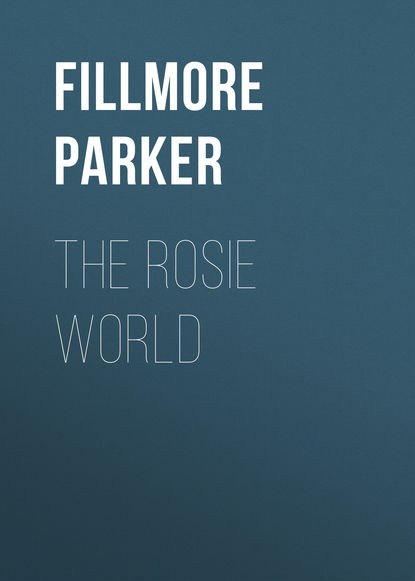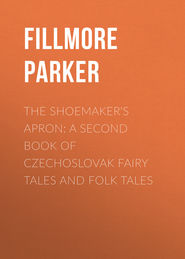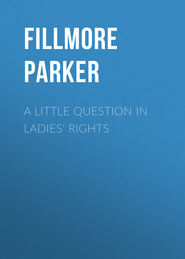По всем вопросам обращайтесь на: info@litportal.ru
(©) 2003-2024.
✖
The Rosie World
Настройки чтения
Размер шрифта
Высота строк
Поля
Rosie's eyes opened wide. "Well now, Janet, he certainly does deserve credit!" As Janet made no comment, Rosie demanded: "Don't you think he does?"
Janet's answer was disconcerting. "Why does he deserve credit for doing what he ought to do?"
Rosie was a little hurt. "When a person does right, I don't see why you're so afraid of giving them a little credit."
"Rosie O'Brien, you're just like all the women! Let a good-for-nothing drunk sober up for a day or two, and they all go saying, 'The poor fellow! Ain't he fine! Ain't he noble! He certainly does deserve credit!' But do you ever hear them giving any credit to the decent hard-working men who support their families every day of the year? I've never heard you say that your father deserved credit!"
This was rather startling and Rosie could only answer stiffly, though somewhat lamely: "My father's different!"
"I should think he was different! And when he hands over money which goes to support his own family, I see you and your mother and the rest of you falling down on your knees and saying: 'Oh, thank you, dear father! You are so noble!' Well, that's what you expect me to do to my old man and that's what he expects, too, because for a week or so he's been paying the bills he ought to pay. And when I don't say it I wish you'd see how injured he looks."
Rosie could not meet the logic of Janet's position, but logic is not everything in this life. "I don't care what you say, Janet," she persisted, "I don't think it would hurt you one bit to say 'Thank you' to him."
Janet started to answer again, then stopped with a laugh. "Tell you what, Rosie, I promise you this: I'll say 'Thank you' to him as soon as you say 'Thank you' to your father for the three meals you eat every day, for the clothes you wear, for the house you live in."
It was Rosie's turn to flare up. "Janet McFadden, you're crazy! Haven't I a right to all those things? Don't I do my share of work in the family?"
"Yes, Rosie, you do and I'm not saying that you haven't every right to them. But why don't you see that I've got the same right? Don't I work as hard as you? And hasn't my poor mother worked harder than your mother has ever worked? My father's got out of the way of supporting us, so I'm not surprised that he thinks he's a wonder when he does it for a couple of days, but search me if I see why you should think so, too, when your father has always supported you without saying a word about it." Janet paused, then ended with a rush: "Oh, don't you see, it would choke me to say 'Thank you' to him with ma lying there in the hospital like a dead woman! Why hasn't he always done this? There's nothing he can do now to make up for all those years. It's too late! Even if she does get well, she'll never be the same. The nurse told me." Janet hid her face in her arm and dry gasping sobs began to shake her body.
"Aw, now, Janet, don't!" Rosie begged. "I see what you mean and I don't blame you – honest I don't."
The issue that Janet had raised was a little beyond Rosie's understanding, but Rosie did realize that Janet was right. Janet's point of view often startled and dismayed her. As on this occasion she would always begin disputing it vehemently and end meekly accepting it.
If Rosie did not make Janet her confidante in regard to the attentions she was receiving from George, it was because the true inwardness of that affair was in the nature of a secret between her and Danny Agin. Rosie was tremendously fond of Janet but, after all, Janet was not her only friend. Danny Agin, too, had certain rights that must not be forgotten. Besides, it must be confessed, it was sweet to hear Janet's "Ohs!" and "Ahs!" over what seemed to be each new evidence of George's devotion.
Danny Agin was watching as keenly as Janet the little comedy which he himself had set in motion.
"So she looked at you like a black thunder-cloud, did she?" he had said, with a chuckle, when Rosie had related Ellen's surprise and involuntary chagrin at George's deflection.
"Yes," Rosie told him. "And, do you know, Danny, when she tried to guy Jarge, he was able for her. She called him a craddle-robber and he says: 'I'm not so sure of that. Let's see: I'm about six years older than Rosie. That means when she's eighteen I'll be twenty-four. That ain't so bad.' And oh, Danny," Rosie ended, "I wish you could have seen how mad Ellen was!"
Danny laughed. "I do see her this minute!" He mused awhile, his eyes blinking rapidly. "It's this way, Rosie: in any case it's a fine arrangement for Jarge, for it has a sort of double-barrelled action. Maybe it'll bring Ellen around. That would suit him fine. But, by the same token, if it don't bring her around, it won't very much matter, for, before he knows what he's about, Jarge'll be wakin' up to the fact that he's havin' just as good a time with another girl as he'd ever be havin' with Ellen and, once he knows that, good-bye to Ellen and her tantrums!"
"Do you really think so, Danny?" Rosie put the question anxiously.
"Do I think so? I do. What else could I think with the sight I've had of all the lads I've ever known fallin' in love and most of them fallin' out again?"
As usual, Danny's words gave Rosie something to cogitate. "Are you perfectly sure, Danny, they do sometimes fall out again?"
Danny raised his right hand to heaven. "I'd be willin' to take me oath they do! In fact, Rosie darlint, it would shame me to tell you how often they do!"
CHAPTER XXXIII
ELLEN'S CAREER
Danny was a wise old bird whose chirpings were well worth listening to. What he prophesied for George seemed likely enough of realization. The new affair, though confessedly pseudo, was cheering from the first. This was to be expected so long as Ellen, notwithstanding her scoffing, was a little miffed. Rosie saw, though, that, in spite of being miffed, Ellen was still perfectly sure that she did not want George for herself. The only feeling she seemed to have in the matter was annoyance that he should no longer be wanting her. At first Ellen was so outspoken in this annoyance that Rosie was able to whisper triumphantly: "You see, Jarge! Didn't I tell you!"
There were other things occurring just at this time which served to keep Ellen irritable and sensitive. Her experience in stenography was, throughout, unfortunate and was making her see in almost everything that happened a slight to herself. To Mrs. O'Brien's prolonged amazement, the heads of various firms continued their insulting treatment of Ellen, discharging her on the slightest provocation or no provocation whatever, and never giving the poor girl, so her mother declared, anything like a fair trial.
"Now what I would like to know is this: " Mrs. O'Brien would begin in the evening as soon as Jamie, poor man, was quietly settled for his bedtime pipe; "how can they know what Ellen can do or what she can't do, never giving her a decent show? The last six places she's been at they've only kept her a day or two days at most. It's me own opinion they don't want a good stenographer. I believe they're jealous of her! I tell you, Jamie O'Brien, it's fair disgraceful, and if I was a man, which I'm thankful to say I ain't, I'd go down there and give them fellas a piece of my mind!"
To Ellen herself, Mrs. O'Brien was, as usual, both sympathetic and voluble. "Don't you mind what them fellas say to you, Ellen dear," she would advise at each fresh disappointment. "You've had as fine a schoolin' as any of them and there'll come a day when they'll all have to acknowledge it. And when they talk to you again about your spelling, you can tell them for me they're mighty smart if they're able to prove what's the right and what's the wrong way to spell a word nowadays. If I was you I wouldn't worry me head one minute about a thrifle like spelling. I'd just go ahead me own way and remember I was a lady and, take me word for it, some of these days you'll hit an office that is an office with fine men at the head of it, able to know good work when they see it and willin' to give credit for it!"
Ellen shared to a great extent her mother's belief in her own ability, and she tried to share likewise Mrs. O'Brien's firm conviction that there was a deep-laid plot to keep her down. In her mother's presence it was easy enough to believe this, but Ellen was too quick-witted to deceive herself all the time and, as the days went by and her failure in stenography grew more and more apparent, she began to lose her air of aggressive confidence and to show in a new sullenness of manner the chagrin and the disappointment she was feeling.
There was no dearth of trial places, as the supply of offices in need of stenographers seemed to be unlimited. So, in the matter of actual earnings, Ellen was doing pretty well. Indeed, her first experience was repeated more than once and she was overpaid in order to be got rid of more quickly. At such times she took the money greedily in spite of the attendant mortification. Mrs. O'Brien saw no cause for mortification but would declare complacently: "Ha, ha, the villians! 'Tis conscience money, no less, that they're paying you! They know they haven't given you a fair show! But don't you mind them, Ellen dear. The right office is comin' yet – you can depend on that!"
Mrs. O'Brien's faith was steadfast and at length had its reward. Ellen came home one evening flushed and triumphant. "Well," she announced, "I've struck it right at last!" Her eyes sparkled with renewed assurance. "No more running around for me, a day here and a day there! I'm fixed! Eight dollars a week to begin on and fifty cents advance every month!"
"I'm not one bit surprised!" Mrs. O'Brien cried. "I knew just how it would be! Now tell us all about it!"
"It's a real estate office," Ellen explained; "Hawes & Cranch. Mr. Hawes is my man. I'm to take his dictation in the morning and get the work out in the afternoon and attend to his private phone. It's a big office. They've got two other stenographers and a book-keeper. By tomorrow Mr. Hawes is going to have my desk put into his room. He's an awful nice man. He says he never had any one who took his dictation better and he says I certainly do understand all about business punctuation."
"I'm sure you do!" Mrs. O'Brien agreed heartily.
"And I wasn't there more than a couple of hours when he said he knew I'd suit and the position was mine if I wanted it."
"Do you hear that!" Mrs. O'Brien gasped. "I'm not one bit surprised!"
"And he apologized for starting me so low. He said it was a rule in their office. He talked like I ought to be getting twenty a week easily."
"And so you ought!" Mrs. O'Brien declared. "And I must say, Ellen dear, if I'm any judge of men, this Mr. Hawes is a fine fella! Mind you're always respectful to him!"
Ellen laughed. "He's not that kind of man at all! He's just as friendly as he can be."
For a moment her mother was anxious. "I hope, Ellen dear, he's not too friendly."
Ellen tossed her head. "Even if he was, I guess I know how to take care of myself!"
In Mrs. O'Brien confidence was restored. "Of course you do, Ellen dear. I trust you for that."
Terry looked at Ellen sharply. "Say, Sis, is this fellow married?"
"Er-a-not exactly," Ellen stammered. "I wasn't going to mention it, but since you ask me I might as well tell. They say he's divorced."
"Divorced!" That was a word to startle Mrs. O'Brien's soul. "You don't say so, Ellen! I'm sorry to hear it! I'm not so sure you ought to stay with him."
Ellen laughed. "Ma, you make me tired! Divorce is so common nowadays, it don't mean a thing! Besides, it wasn't his fault. Miss Kennedy, one of the other stenographers, told me so."
Mrs. O'Brien was plainly relieved. "I must say I'm glad to hear that. I suppose now she was one of them dressy, lazy, good-for-nuthin's that nearly drove the poor fella mad with her extravagance. There are such women and a lot of them!"
One of the first results of Ellen's new position was an utter indifference to George Riley and Rosie and to their little comedy. It was not so much that she intentionally ignored them as that she did not see them even when she looked at them – at any rate, did not see them any more than she would have seen two chairs that occupy so much space and are not to be stumbled over. There was one subject now and one only that filled her mind to the exclusion of all others. This was her new employer. She talked about him constantly, first as Mr. Hawes, then as Philip Hawes, and soon as Phil. It was "Phil this" and "Phil that" throughout breakfast and supper.
In no one but her mother did Ellen arouse any great enthusiasm, but Mrs. O'Brien was a host in herself and in questions and ejaculations more than made up for the indifference of the others.
To his kindness to Ellen during office hours, Hawes was soon adding social attentions outside office hours, inviting her to places of amusement in the evening and taking her off on Sunday excursions.
"He is certainly a very kind-hearted gentleman," Mrs. O'Brien repeatedly declared; "and it would give me much pleasure to take him by the hand and tell him so."










